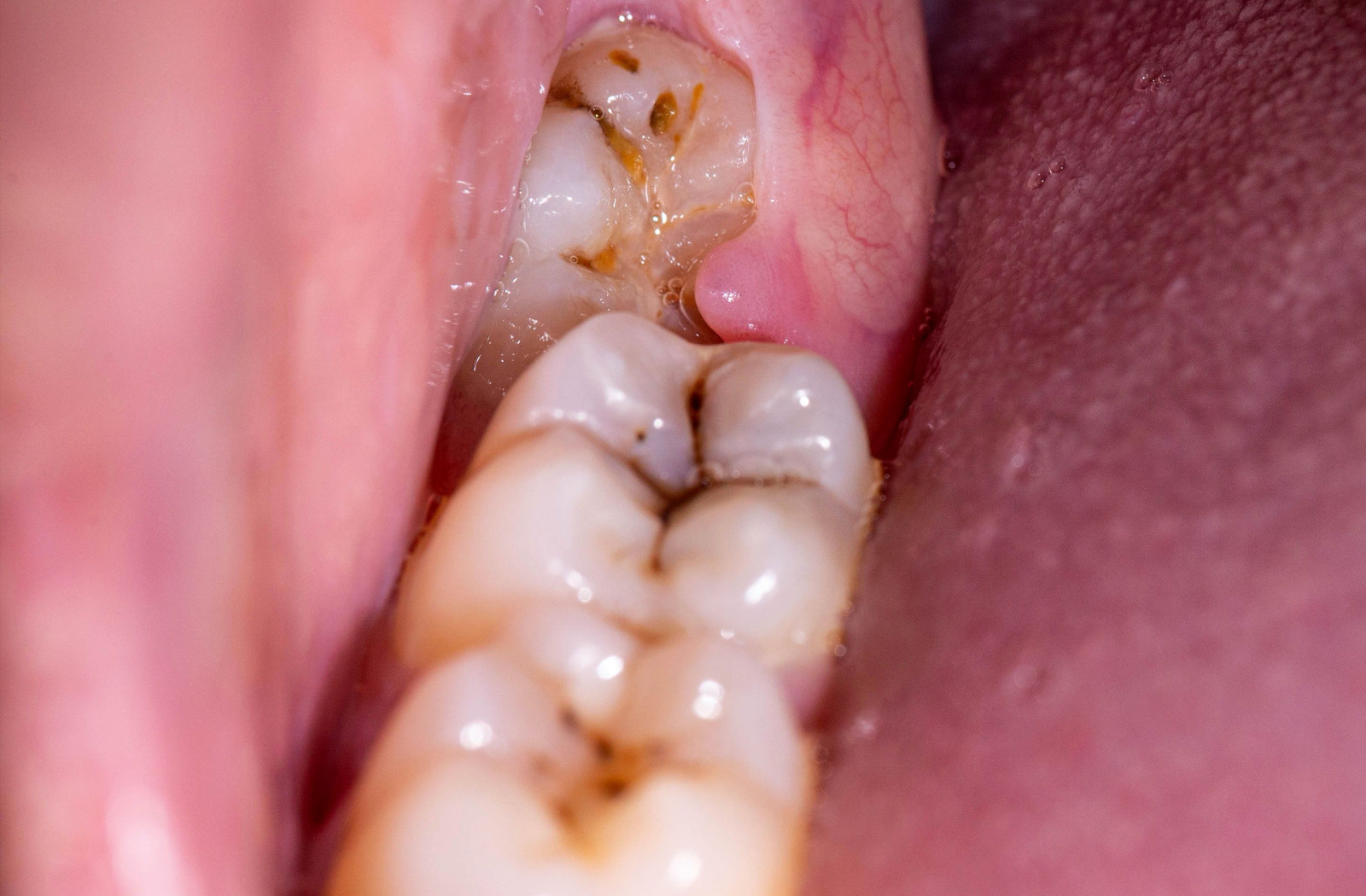Wisdom tooth cavities are often silent until they become a major problem. Learn to recognize the subtle signs and prevent irreversible damage.
What Are Wisdom Tooth Cavities?
Wisdom teeth, also known as third molars, are the last teeth to erupt, typically in late adolescence or early adulthood. Because of their location at the very back of the mouth, they are notoriously difficult to clean effectively. This makes them particularly susceptible to cavities, just like any other tooth. A cavity, also known as dental caries, occurs when bacteria, sugar, and acid combine to attack the enamel, the protective outer layer of your teeth. Over time, this can create a hole in the tooth, leading to pain and other complications. Impacted wisdom teeth, which are partially or fully trapped beneath the gums or bone, are even more prone to cavities as they create ideal hiding spots for bacteria and food particles.
Recognizing the Signs
Don’t let a wisdom tooth cavity derail your oral health. Explore treatment options ranging from fillings to extraction. Early detection is crucial. While some cavities may initially be asymptomatic, as the decay progresses, you may experience:
- Pain: This can range from a dull ache to a sharp, throbbing sensation, often worsened by biting or chewing. Wisdom tooth growing pain can sometimes be mistaken for a cavity.
- Sensitivity: Increased sensitivity to hot, cold, or sweet foods and drinks can be a sign of decay.
- Swelling: The gum tissue around the affected tooth may become red, inflamed, and tender.
- Bad Breath: A persistent unpleasant odor, even after brushing and flossing.
- Unpleasant Taste: A lingering bad taste in your mouth.
- Bleeding Gums when brushing or flossing: Though more likely related to other gum issues, bleeding could potentially be related to infection spreading from the cavity.
If you experience any of these symptoms, schedule a dental appointment promptly.
Diagnosing and Treating a Wisdom Tooth Cavity
Your dentist will conduct a thorough examination and likely take X-rays to determine the extent of the decay and the best course of action. Treatment options may include:
Fillings
For smaller, accessible cavities, a filling may suffice. The dentist removes the decayed portion of the tooth and fills it with a composite resin or amalgam material.
Crowns
If the decay is more extensive and has weakened the tooth structure, a crown may be necessary. A crown is a custom-made cap that covers the entire tooth, restoring its strength and appearance. Sometimes, teeth lengthening procedures may be considered in conjunction with crowns for optimal aesthetics and function.
Extraction
Extraction, or removal of the tooth, is often the recommended treatment for severely decayed, infected, or impacted wisdom teeth. Impacted wisdom teeth are particularly susceptible to cavities. Understand the risks and how to protect yourself. This procedure is typically performed by an oral surgeon under local anesthesia, and recovery usually involves some swelling and discomfort. Your dentist or oral surgeon will provide post-operative instructions to manage pain and promote healing. Extraction might also be recommended if the wisdom tooth, even without decay, is causing pressure or pain and impacting surrounding teeth. This is done to prevent shifting teeth, potential harm to adjacent teeth, and the formation of cysts.
Prevention Strategies
Preventing a wisdom tooth cavity is always preferable to treatment. Here’s how to protect your wisdom teeth:
- Meticulous Oral Hygiene: Brush twice daily for two minutes with fluoride toothpaste, paying close attention to the back of your mouth. Consider using an electric toothbrush for better access to those hard-to-reach molars.
- Daily Flossing: Flossing is essential for removing plaque and food particles from between your teeth, where your toothbrush can’t reach.
- Antimicrobial Mouthwash: Rinsing with an antimicrobial mouthwash can help reduce bacteria and freshen breath.
- Dietary Choices: Limit sugary foods and drinks to starve the bacteria that cause cavities.
- Regular Dental Checkups and Cleanings: Professional cleanings remove plaque and tartar buildup, and regular checkups allow your dentist to detect cavities early, when they are easier to treat.
- Dental Sealants: These thin, plastic coatings applied to the chewing surfaces of molars can help prevent cavities by creating a barrier against bacteria and food particles. Discuss sealants with your dentist, especially if your wisdom teeth have erupted fully and are accessible.
While these preventive measures significantly reduce the risk, they don’t guarantee complete protection. Ongoing research continues to explore new techniques for preventing and treating tooth decay.
Should a Decayed Wisdom Tooth Be Removed?
Worried about a wisdom tooth cavity? This guide covers everything from identification to recovery, empowering you to make informed decisions about your oral health. The decision to extract a wisdom tooth depends on several factors, including the extent of the decay, whether the tooth is impacted, and the presence of any associated complications like infection or damage to adjacent teeth.
| Scenario | Likely Recommendation | Possible Complications if Left Untreated |
|---|---|---|
| Minor decay on a fully erupted tooth | Filling | Increased decay, pain, infection |
| Significant decay affecting the pulp | Extraction | Severe pain, infection spreading to other areas |
| Impacted wisdom tooth with decay | Extraction | Pain, infection, damage to adjacent teeth, cysts |
| Impacted wisdom tooth without decay but causing pressure/pain | Extraction | Pain, shifting teeth, damage to adjacent teeth |
While some researchers suggest exploring alternative treatments, extraction is often the most effective approach for addressing severe decay and complications related to impacted wisdom teeth. Your dentist will evaluate your specific situation and guide you towards the best decision for your oral health.
Disclaimer: This information is intended for educational purposes only and should not be considered medical advice. Consult with a qualified dental professional for diagnosis and treatment recommendations.
- Compartment Food Containers Make Meal Prep and Lunch Packing Easy - February 10, 2026
- Divided Lunch Containers Revolutionize Your Meal Prep Strategy - February 9, 2026
- Divided Food Storage Containers Transform Meal Prep and Portion Control - February 8, 2026










